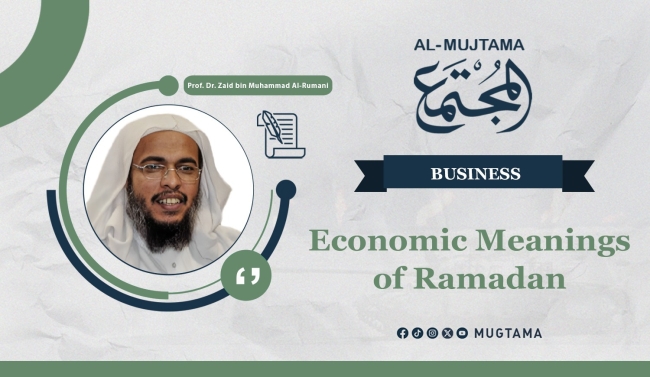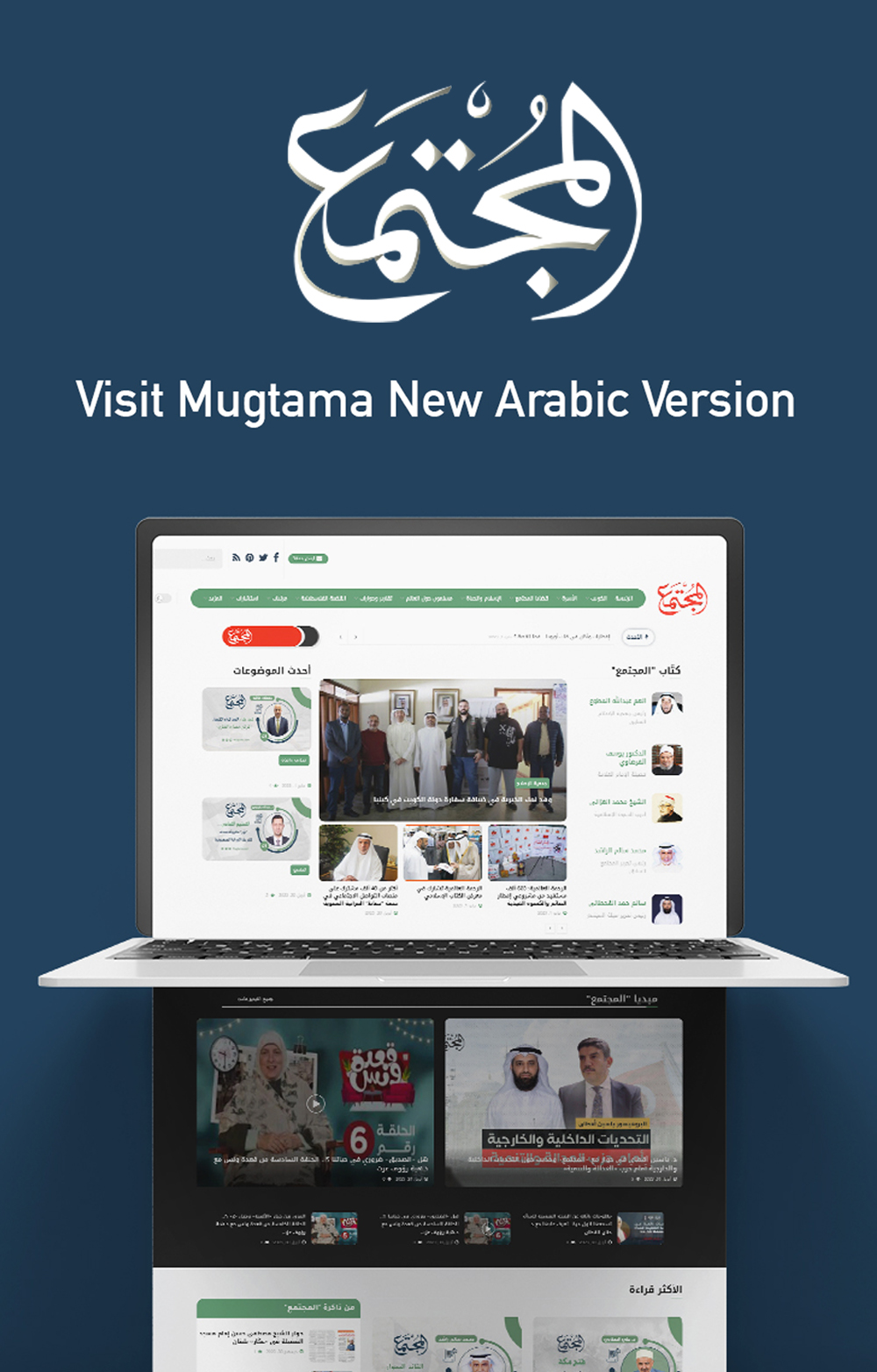Fasting is a great school of discipline. In fasting, complete solidarity between the rich and the poor is manifested. It provides an opportunity to cultivate the trait of honesty within the fasting person. Moreover, the obligation of fasting instills a sense of order and discipline in the soul of the believer. In short, fasting is one of the pillars of Islam. It is mentioned in the divine hadith: “The Fast is for Me and I will give the reward for it.”
On another note, one of the meanings of fasting is abstaining from the desires of the stomach. From an economic perspective, it signifies reducing expenditures or, more precisely, rationalizing them. However, in contemporary life, we observe an inverse relationship between the month of fasting and excessive consumption, which is astonishing given the widespread consumerist frenzy that grips people during this month without any logical justification.
Everyone rushes towards excessive consumption. Preparations for Ramadan start early, accompanied by an overwhelming wave of advertisements and marketing campaigns that relentlessly target families everywhere. Wives pressure their husbands to buy more, children persist in their demands, and even individuals themselves develop an insatiable urge to purchase anything consumable in unnecessary quantities.
Regrettably, some people have adopted bad consumer habits that are foreign to the essence of Ramadan, habits that are not in line with Islamic teachings.
It is commonly believed that women are more extravagant than men, whether in clothing or spending. However, some men are even more wasteful in their financial habits, behavior, and possessions. The issue is relative and depends on the level of temptation toward extravagance.
The crucial question remains: Who is more extravagant, men or women, or both equally?
The truth is that both men and women bear responsibility, although extravagance and wastefulness tend to be more prevalent among women in a relative sense.
Therefore, both the wife, who prepares and cooks, and the husband, who provides and spends, are equally responsible for the consumerist greed that overtakes our society during Ramadan and beyond.
According to statistics, in one Arab country, Ramadan accounted for 20% of the annual consumption, meaning that in just one month, this country consumed one-fifth of its yearly expenditure, while the remaining four-fifths were spread across the rest of the year. That year, Ramadan cost the state approximately 720 million dollars.
Recent studies indicate that the amount of food waste discarded in garbage bins is alarmingly high, reaching up to 45% of total waste in some cases.
A field study on extravagance and food waste in one city within an Arab country revealed that daily food waste amounted to around one million lira, totaling 365 million lira annually.
Thus, it can be said that extravagance, both during Ramadan and in general, is a defining characteristic of the Arab region. When Ramadan arrives, most Muslims allocate a specific budget for regular months, only to double their consumption during this month. The day is spent in fasting and lethargy, while the night becomes a time for excessive eating and consumption.
Many have forgotten or ignored the fact that reducing daily meals from three to two is a valuable opportunity to lower consumption levels. This is particularly beneficial for our economies, given that we are a consuming nation. Statistics indicate that all our countries consume more than they produce and import more than they export. Such constant overconsumption and excessive imports are two serious economic factors that burden public budgets and balance of payments.
It is clear that extravagant spending during Ramadan is incompatible with the economic realities of most Muslim societies, which are still developing and require careful preservation of resources. What we practice during Ramadan is undoubtedly a waste—not only of financial resources but also of noble values and the virtue of contentment.
Moreover, continuous overconsumption increases dependence on foreign imports, as we have not yet reached a level of self-sufficiency that enables us to meet our needs through local resources. This creates a more dangerous dimension—economic dependency on external suppliers who control the quality, type, and timing of the resources we rely upon.
As a result, excessive consumption has numerous serious implications that threaten both our economies and national security. Can Ramadan, then, serve as an opportunity to develop the willpower to combat this unchecked consumerism that takes hold of us during this sacred month?
The proper consumption pattern for a Muslim is one of sufficiency, not extravagance. True fulfillment is achieved not only through material satisfaction but also through spiritual enrichment—by fulfilling one's duty towards fellow Muslims, recognizing that wealth is a blessing from Allah.
Thus, a Muslim seeks Allah’s pleasure by expressing gratitude for His blessings, using them to meet needs, avoiding the unlawful, and striving for His approval and reward.
The month of fasting presents an annual opportunity to reevaluate necessary expenses, eliminate unnecessary ones, and reorder financial priorities. It is also a chance to identify surplus resources that can be better utilized.
Ramadan should be an occasion for improved financial discipline and resource expansion, provided it aligns with the divine guidance: "And eat and drink, but be not excessive." (Al-A'raf: 31)
This principle serves as a foundation for financial discipline at both the individual and societal levels.
Researchers have emphasized an important truth: consumption chaos becomes evident when household expenses are driven by impulsive spending on goods and food items that devour the entire monthly income.
The habit of wastefulness extends to children, who grow up without a sense of value for material possessions. As a result, they do not take care of their belongings, such as toys and books. This issue is not just a temporary one—it extends into the future, making extravagance and luxury a national concern rather than just a family issue. Ramadan has increasingly become a commercialized season, heavily exploited by marketing campaigns to promote various products—often those far removed from the spirit of the holy month.
Thus, religious sentiments are being increasingly manipulated for market expansion, sometimes to promote goods that are entirely unrelated to Islam.
In conclusion, the key to solving these crises lies in consumer education. Ramadan serves as a training period for adopting a disciplined consumption pattern. It is an intensive month-long exercise that demonstrates how a person can live by reducing unnecessary consumption for extended periods daily. This, in turn, helps break the habit of consumerist greed, which sociologists and psychologists agree is a pathological condition.
The most effective ways to counteract excessive consumerism or at least mitigate its impact include:
1. Eliminating harmful consumerist habits to prevent extravagant spending from causing poverty in the midst of abundance, as unchecked consumption can deplete family resources.
2. Estimating the required quantities, quality, type, and duration of use for purchased goods and products.
3. Controlling emotional impulses related to purchasing and consumption, especially among children, women, and families.
4. Avoiding imitation of luxury-driven societies that practice wasteful consumption.
To my Muslim sisters, when you feel the urge to spend excessively or succumb to shopping temptations, consider these steps:
- Pause before spending, and ask yourself whether this urge is genuine or just an emotional impulse.
- Avoid trying to buy others' affection with extravagant gifts or imitating their spending habits.
- Before making a purchase, ask yourself if a better deal might be available elsewhere.
In conclusion, if we were to collect all the money wasted on trivial matters and allocate it to alleviating human suffering, the world would be a much better place to live.
-------------------------------------------------------------
For Contact: This email address is being protected from spambots. You need JavaScript enabled to view it..


